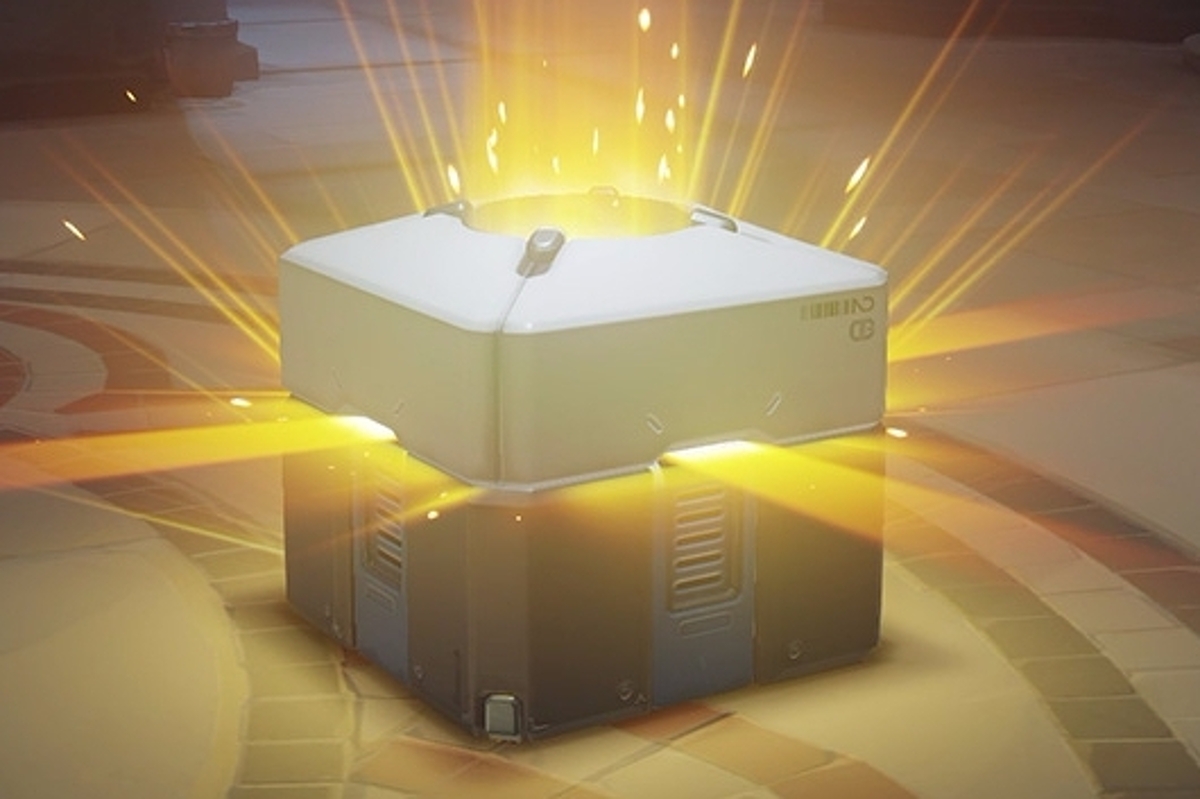When it comes to casinos or bookmakers the situation is simple. Anyone who partakes in casino games such as blackjack, roulette, or craps, is fully aware that they are gambling. Similarly, if an individual chooses to back the Yankees against the White Sox it is clear that they are involved in sports betting.
The video games industry however has managed to sneak elements of gambling into their console and PC releases, as well as smartphone apps. This has led to calls by the British Government to investigate bringing in legislation for items such as loot boxes and other random elements in games that involve cash.
Using loot boxes and other methods to encourage in-game purchasing has even led to the casino industry copying techniques seen in games such as Overwatch and Gears of War 4.
Are loot boxes a form of gambling?
When the casino industry feels that you are doing something right with loot boxes then perhaps it is time to wonder if there is some form of gambling going on.
Despite the fact that scientists in the UK found strong links between loot boxes and gambling, the video games industry has largely dismissed any links. A Vice President of Electronic Arts said at a conference that loot boxes were similar to Kinder Eggs, the chocolate egg that comes with a mystery toy inside.
Kerry Hopkins, the VP in question, seemed oblivious to the fact that Kinder Eggs are banned in the United States so it may not have been the best comparison.
Although there is so far no definitive legislation stating that loot boxes are the same as gambling, they do lead gamers to pay repeatedly for these items because they hope for something special inside. They aren’t looking for a plastic Kinder toy, but a rare and valuable item.
How are loot boxes perceived across the globe?
All across the world, there are different laws regarding the various forms of gambling available. In the UK, casino games are fully legal in land-based and online forms. In the US, the law is more complicated due to varying state legislations. Loot boxes are also viewed in different ways at this time.
The US and the UK along with other countries such as Germany have expressed their disapproval at the use of loot boxes in video games. Other countries have taken this further and used the power of the law to change the way loot boxes are used.
China brought out regulations that meant video game developers would have to show what items could be won from loot boxes, the percentage of probability of these items being gained, and new laws mean that the exact drop rate of boxes needs to be displayed also. Plus, they have also capped the number of loot boxes one player can buy each day to restrict the risk of financial problems arising.
Belgium and the Netherlands have put in place restrictions against loot boxes, and Brazil has started the process to ban loot boxes in games.
Gacha games
One other country has already had a legal fight against their version of loot boxes. In Japan, there is a system known as complete gacha. Smartphone apps and other forms of digital entertainment involving this mechanic are known as gacha games.
These games have a type of loot box in them and purchases must be made to gain certain powers needed to progress. The problem with complete gacha is that these games cannot be finished without certain resources and that means players keep on buying the loot boxes until they can finally move on.
In 2012, Japan banned complete (or kompu) gacha outright and there is talk that other gacha games may be prohibited too.
Is the online gambling industry really copying loot boxes?
There is evidence that casinos are now following this gamified trend by utilizing the loot box mechanic. Bonuses are given out in online casinos and there are loyalty or free bets, plus sign-on bonuses. What makes them similar is that there are hidden bonuses available and free spins when cash deposits are made, but the player doesn’t know what they will receive, just like loot boxes.
Where these two areas differ is, the player making the deposit will still be able to use their cash to play and whatever bonus they receive is simply that, a bonus. Also, the player in an online or live casino is aware that they are in a gambling environment.
What effect would banning loot boxes have?
While countries are edging towards legislation against loot boxes, the video game developers will be looking for loopholes to keep their revenue rolling in. Banning loot boxes is not certain to be the answer. Perhaps China’s system of making the drop rates and chances of winning be displayed in the game is correct. After all, if you knew you had a 0.5% chance of getting the item you wanted would you keep on spending dollar after dollar?
Some games have avoided the loot box system or altered it to be fairer. Fortnite is a great illustration of a game where loot boxes are transparent. Epic Games clearly has a different viewpoint to EA as one boss there stated that he believed loot boxes cause harm to their players. They went one step further and made their llama ‘loot boxes’ transparent so the player can see what they will get before buying.
Bungie has shown what might happen if loot boxes are banned. They switched from loot boxes to microtransactions that potentially cost even more money in the long run.
Summary
In casinos, you can improve your chances. When you play casino games with basic strategy such as blackjack you lessen the house edge. With loot boxes, however, you are opening a chest blindly and it is more like a raffle than any game of skill.
Regardless of what some company VPs like to proclaim, paying money for a mystery prize when you hope to get something of a higher value sounds a lot like gambling.
Loot boxes prey on FOMO or the fear of missing out. This is why they can lead to great expense with gamers trying again and again to get that special weapon or skin. A bit like someone trying to win the jackpot isn’t it?





Nerd Comments